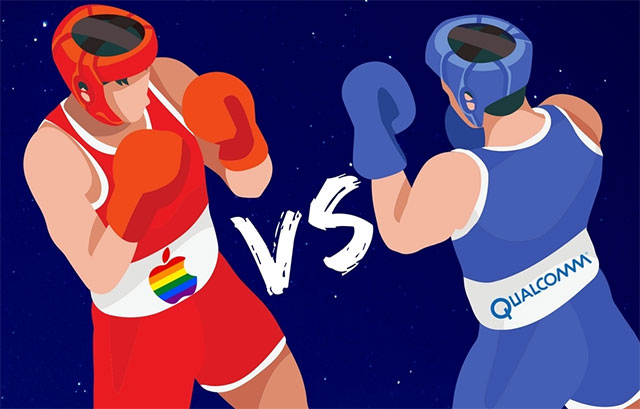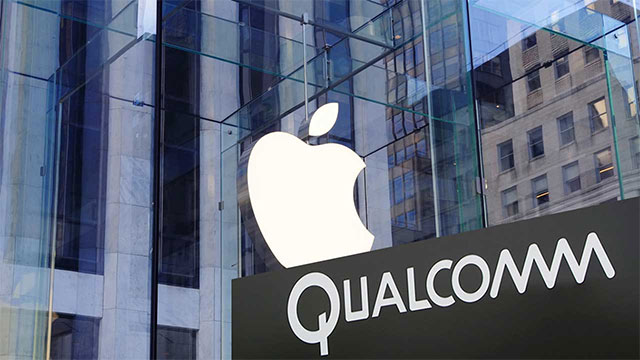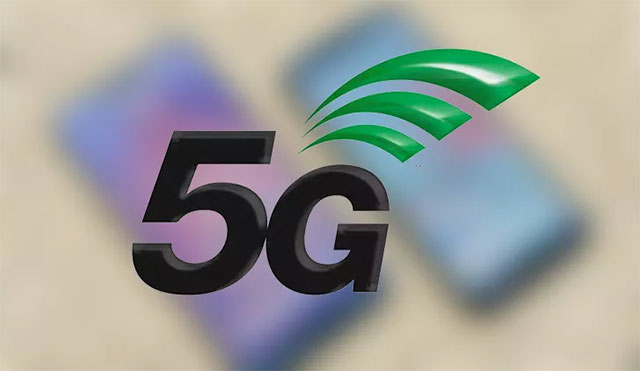The billion-dollar details of the FTC antitrust trial between Apple and Qualcomm
With a capitalization ten times higher than Qualcomm, Apple could hardly imagine being a victim of a multi-billion dollar extortion campaign.Qualcomm is accused of monopolistic behavior, placing too high copyright prices, as well as refusing to grant licenses to developers of other processors, and promises exclusive deals with firms like Apple if they go from refusing to use products from other manufacturers.
However, the latest developments in the US Federal Trade Commission 's antitrust lawsuit against Qualcomm are asking "hard" questions for both companies, which are cross - linking accusations. With regard to difficult fees and licensing terms, as well as new information revealing why Qualcomm's modems have disappeared from 2018-produced iPhones.

- After Apple, Samsung is also worried about sales and profits plummeting
According to a courtroom report from CNET (via MacRumors), one of the important issues is Qualcomm's 'no license, no chips' policy.The company uses its main portfolio of mobile patents as a lever when negotiating against Apple.If Apple refuses to agree to Qualcomm's standard licensing terms, they will not be allowed to purchase Qualcomm's CDMA compatible iPhone modem, while these are necessary parts to produce iPhones for carriers. Verizon.
Apple CEO Jeff Williams testified in the trial today that the company had negotiated an agreement with Qualcomm in 2011 to acquire CDMA modems, which Qualcomm requires a percentage of. for every iPhone sold.Apple only wants to pay $ 1.50 for Qualcomm with each iPhone sold.Specifically, a modem costs $ 30, and the license fee is 5% or $ 1.5, but Qualcomm does not agree and eventually, Apple still has to pay up to $ 7.5, as well as to give Qualcomm the poison. right to baseband chip and agree to speak out against a budding wireless standard called WiMax.If they violate those terms, the payments Apple has to pay for Qualcomm will increase.

Even so, Qualcomm is not the only company looking to make money from this deal.In a testimony last week, Qualcomm's chief executive, Steve Mollenkopf, said Apple initially required a $ 1 billion fee to reduce the technical costs of converting existing iPhone chips with Qualcomm.
Two years later, Qualcomm tried to raise the fee that Apple had to pay from 7.5 to $ 8 to $ 10, thereby making Apple's annual chip licensing costs with Qualcomm potentially increase by another billion dollars.After negotiations, Apple retained the same price, but they were forced to use Qualcomm's proprietary chip, not finding other partners.However, after successfully negotiating chip supply contracts from both Qualcomm and Intel - a move Qualcomm has described is dependent on Apple's unauthorized use of Qualcomm technology to support Intel - Apple has kicked off. initiating a lawsuit and related actions against Qualcomm's licensing fees.But that is afterward.
- iPhone 2018 will only use Intel modems, leaving Qualcomm out
The latest revelations contributed to adding details to Apple's earlier allegations to Qualcomm, suggesting that Apple felt obligated to pay high licensing fees in order to support the Verizon CDM network. (an essential step in iPhone business development).
'We have to face the need to pay a rising cost of more than $ 1 billion a year for royalties, just like being gunned to the head,' said Mr. Williams. must sign a new contract in 2013.

Despite Apple and FTC lawsuits against Qualcomm, Williams testified that Apple hopes to continue to use both Modem and Intel modems in its latest iPhones, but has been rejected.'The plan to use modems from our two separate vendors has been rejected by Qualcomm.They will stop supporting or selling chips to us.We would love to continue to have access to Qualcomm's technologies.
- Apple will cut production by 10% for all new iPhone models produced this year
Jeff Williams's testimony, somewhat puzzling because Qualcomm's CEO Steve Mollenkopf has repeatedly said last year that he expects problems with Apple to be resolved before the trial takes place.Furthermore, Bloomberg also reported that Qualcomm has provided Apple with modems that can be used in the iPhone 2018 and publicly stated that they are committed to supporting Apple's new devices, in accordance with Qualcomm's own support. with all other partners.In addition, Qualcomm also stated that a reduction in patent licensing fees for each device is intended to improve their relationship with other high-end device manufacturers.
Issues of licensing and chip supply have become more serious in 2018, as Qualcomm has been at the forefront of promoting commercialization of 5G mobile technologies.This clearly prevented Apple from releasing the iPhone 5G until another company offered them a 5G modem, because Intel struggled to complete the technology, giving Samsung and MediaTek rivals a chance. potential.

As said, because Qualcomm does not agree to continue cooperation, on the iPhone 2018, Apple only uses modems provided by Intel.This clearly made Apple unable to get up early on 5G because Intel struggled to perfect this technology.According to observers, Intel's first 5G chips will only be completed by 2020, while Qualcomm currently offers 5G chips to many vendors to launch this year.Therefore, the high possibility is that the mobile network connection speed of iPhone in this year will be inferior to the competition.This fact also opens up the potential for Samsung and MediaTek to have the opportunity to become chip suppliers for Apple.
See more:
- Although the iPhone is sluggish in the international market, Apple set a record of sales in Malaysia and Vietnam
- CEO Tim Cook has 'pocketed' more than $ 15 million in 2018 - 283 times more than the average salary of an Apple employee in a year.
- 3D ultrasound fingerprint sensor under Qualcomm's first screen in the world
- Snapdragon 8cx: The world's first 7nm chipset for PC, supports Windows 10 Enterprise, connects 2 4K monitors
You should read it
- ★ Apple blocks updates to an email client with ChatGPT integration
- ★ Snapdragon 865 pitted A13 Bionic: 'One more pain' for the Qualcomm team
- ★ Qualcomm will continue to be Apple's sole 5G modem supplier until the 16' iPhone series
- ★ Compare the size of high-end chips from Qualcomm, Samsung, Huawei and Apple
- ★ Apple has been sued collectively because the iPhone XR has poor reception